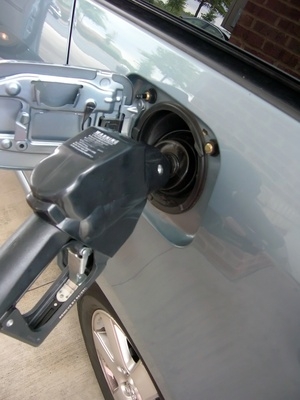
The diesel powered Volkswagen Jetta TDI gets excellent mileage, currently rated at 42 miles per gallon on the highway by the EPA. For many TDI owners, though, this is only the average. Volkswagen runs a program called "TDI Tank Wars" in which TDI drivers compete for the best mileage figures. The leaders claim to have achieved 90 miles per gallon or better, and mileages in the 60 to 70 mpg range are common. You may not reach these figures in your everyday commute, but with attention to detail and careful driving you can save a great deal of money on fuel costs.
Keep your engine tuned up according to your Jetta owner's manual. Change your oil regularly and be sure that your oil, air and fuel filters are replaced on schedule. Keep your tires inflated to the recommended pressure; this is normally listed on the driver's side door or door frame. Be sure not to inflate the tires beyond the maximum pressure listed on the tire sidewall.
Change your driving habits to improve your mileage; this will have a greater impact on fuel economy than any other factor. Above all, watch your speed. The Department of Energy estimates that reducing your speed from 65 to 55 miles per hour can improve your car's mileage by 15%. Avoid jackrabbit starts and sudden stops. When approaching a red light, take your foot off the accelerator and coast; if the light changes, you may avoid coming to a complete stop. If your car has a manual transmission, shift up as soon as you can to keep the engine from revving too high, and stay in the upper gears as much as possible. Use your cruise control whenever you can.
Plan your trips to avoid congested areas, excessive stop lights or stop signs and hills. Combine errands to reduce the number of trips you take. Remove any excess cargo weight. Minimize the external drag on your car by removing unneeded roof racks and keeping your windows and sunroof closed whenever possible. Avoid idling; shut off your engine while waiting in long lines such as at bridge openings or train crossings.
Keep track of your mileage and note anything that might affect it. For example, some drivers note that they get better mileage when buying fuel from certain stations; diesel fuel quality can vary significantly among different suppliers. Recording your mileage with each refueling can help you develop a "high mileage" mindset, improving your awareness of all the factors that effect your car's fuel economy.